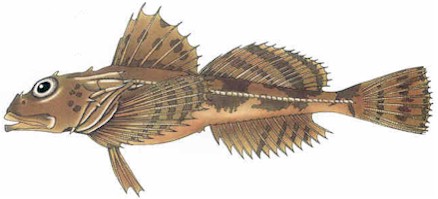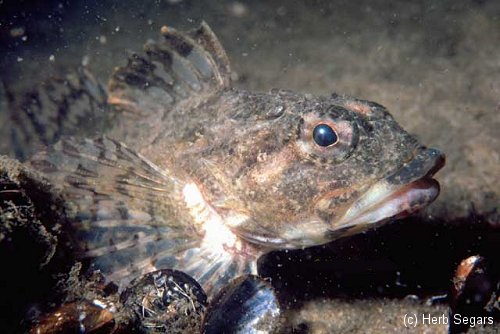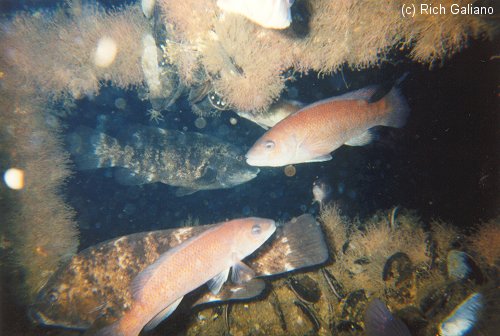Longhorn Sculpin
Myoxocephalus octodecimspinosus

Size: to 18"
Habitat: Generally inshore in harbors and inlets, in 30-40 foot depths, but moves out to deep waters in winter.
Notes:
Sculpins have sharp spines around the head area - best to leave them alone. Sculpins are capable of loud vocalizations. Grubby is similar but smaller with a more rounded tail.



